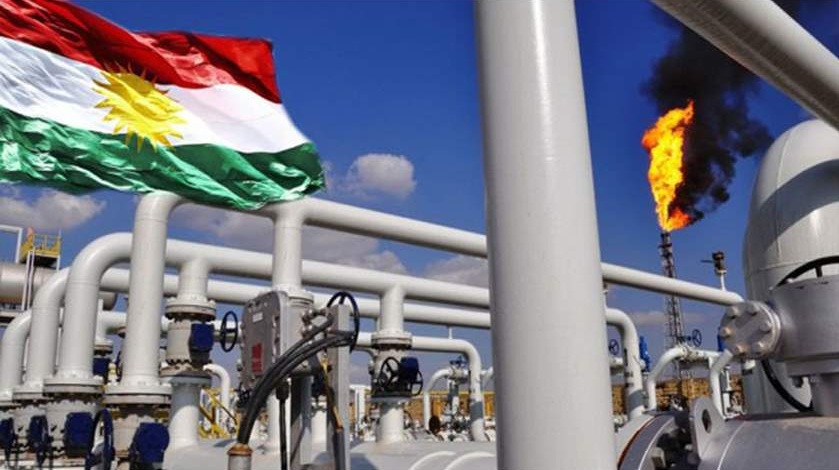Alwaght- Iraq's semi-autonomous Kurdistan region is secretly selling oil to Israel Israeli regime at heavily discounted prices, Al-Araby Al-Jadeed reported.
The London-based newspaper has cited the trade as one of the reasons why the Kurdistan region is dragging its feet about reaching an oil export agreement with the central government in Baghdad.
Tel Aviv is buying significant amounts of Iraqi oil from certain parties and “mafias” in the Kurdistan region for prices as low as $16 or $17 dollars, Al-Araby Al-Jadeed said.
The oil is produced in Erbil and Sulaymaniyah and then moved into Turkey’s Mersin and Ceyhan ports through the small Iraqi border town of Zakho. From there, it is loaded unto tankers that take it to Israel’s largest port of Ashdod.
British daily the Financial Times reported last August that Israel had obtained 75 percent of its oil supplies from the Iraqi Kurdistan, with more than a third of those exports going through the Ceyhan port.
Kurdistan leaders have been reluctant to engage in dialogue with Baghdad in order to resolve outstanding issues about oil flows out of the region.
In late February, Iraq’s Minister of Oil Thamer al-Ghadhban said the central government had yet to receive its share of oil produced from Kurdistan fields.
“Iraq’s State Organization for Marketing of Oil (SOMO) has not yet received its 250,000 barrels share of crude oil from Kurdistan oil fields in the framework of Iraq’s 2019 federal budget,” Ghadhban told state media al-Iraqiyah.
It was reported in November that both sides were close to securing a deal to restart oil exports from the disputed territory of Kirkuk as a result of US pressure to ramp up production after imposing sanctions on Iran’s oil industry.
US President Donald Trump has pledged to drive down Iran’s oil exports to “zero” and the Baghdad-Kurdistan deal would purportedly add up to 400,000 of barrels of oil a day to international supplies in order to ease price rises after possible drop in Iranian sales.
The Kurdish oil trade with Israel runs against Iraqi laws that have declared any ties or contributions to the regime as punishable by death.
An unnamed Iraqi official told Al-Araby Al-Jadeed that various political factions had asked Prime Minister Adil Abdul-Mahdi to discuss the issue with Kurdish officials and find a way to end the oil smuggling business.
Abdul-Mahdi is reported to be enjoying much closer relations with Kurds than his predecessors.
In 2014, when he was Iraq's oil minister, he reached an agreement with Kurdistan's regional prime minister Nechirvan Barzani to end a dispute over independent oil sales which had prompted Baghdad to stop sending Erbil its share of the federal budget.
Sophisticated network
According to reports, Israel and illegal Kurdish and Turkish traders have developed a sophisticated network of oil tankers that freely transfer Iraqi oil to Israel using fake identities.
Israeli website Haaretz reported last year that Samir Madani, a Kuwaiti oil trader, had recorded some irregularities in the paths of some oil tankers heading to the Suez Canal from Turkey’s port of Ceyhan.
Data from TankerTrackers.com, a platform co-founded by Madani which holds records of all oil shipments, showed that one particular tanker made an unexpected stop near Israel’s territorial waters in the eastern Mediterranean, turned off its identification transponder and “resurfaced” a few days later, “mysteriously” lighter than when it had left Ceyhan.
The vessel then went back to Turkey to load up Iraqi oil and repeated the journey and disappeared in the same exact manner.
Similarities to Israeli oil dealings with ISIS
According to a report by the Israeli newspaper Globes in 2015, Syrian and Turkish oil smugglers used similar shipping methods to sell oil stolen from ISIS-controlled territories in Syria.
"Israel has in one way or another become the main marketer of ISIS oil. Without them, most ISIS-produced oil would have remained going between Iraq, Syria and Turkey,” the paper quoted an unnamed industry official as saying in an interview with the Al-Araby Al-Jadeed, using another acronym for the terror outfit.
Israel’s support for Kurdistan’s secession from Iraq
The oil trade would have been nearly impossible without the existing pipeline between Turkey and the Kurdistan region.
Ankara threatened to block oil supplies from the Iraqi Kurdistan when the the Kurdistan Regional Government (KRG) held a non-binding independence referendum to seceded from Iraq in 2017.
Israeli regime, on the other hand, voiced strong support for the “desires” of secessionist Kurds and said they were demonstrating “national maturity and international maturity.”
According to Israeli website i24, the oil trade between Israel and the Iraqi Kurdistan has slumped since the collapse of the independence bid as well as the central government’s victories in recapturing key oil fields in Kirkuk from Kurdish control.



























